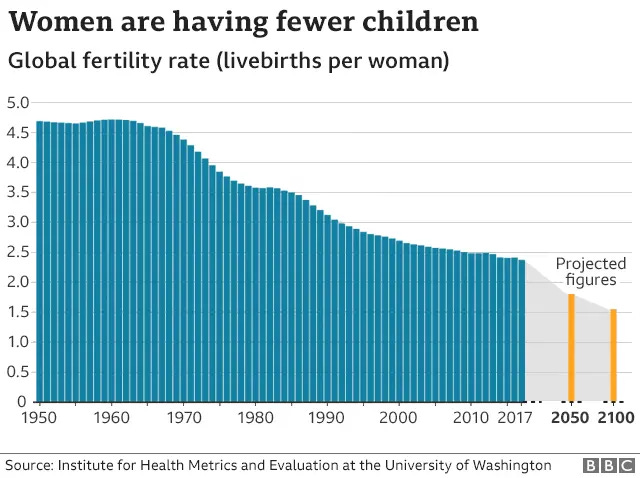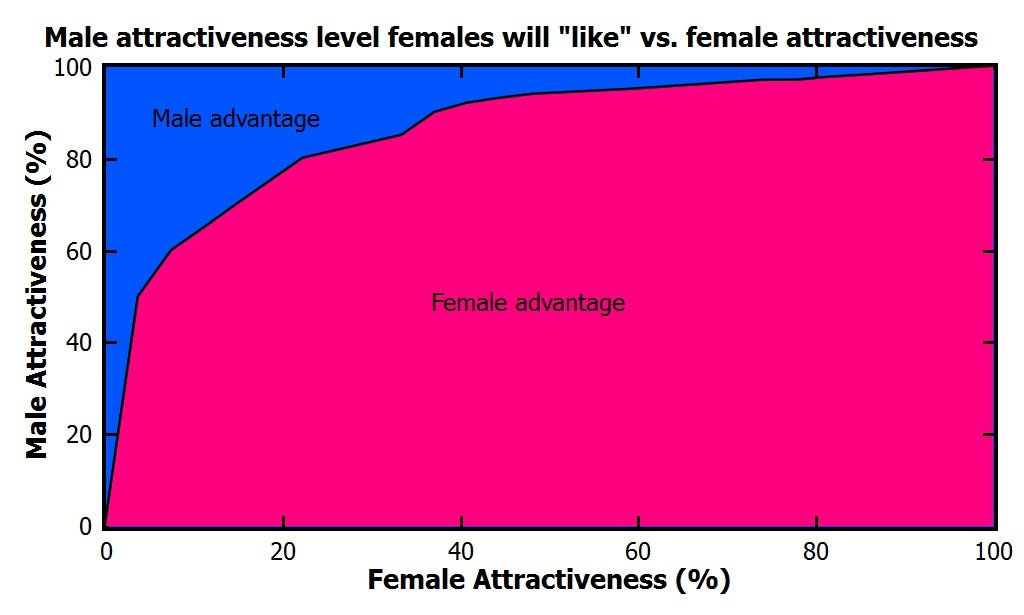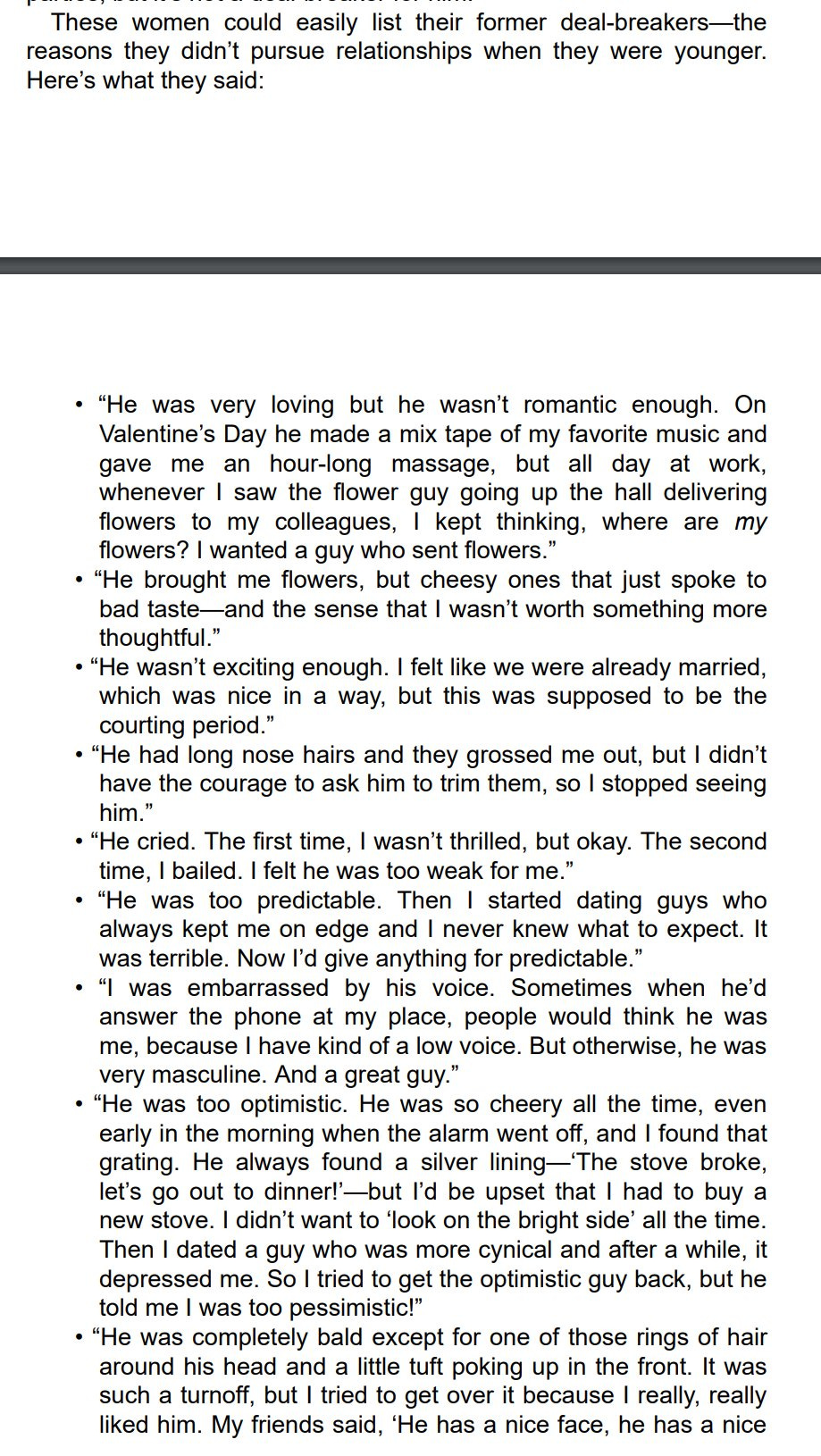What Do Women Really Want?
The desire of the man is for the woman, but the desire of the woman is for the desire of the man
We are discovering that there is such a thing as an “ordeal of affluence,” that diffused affluence subjects the social order to greater strain and threatens social stability more than does diffused poverty.
—Eric Hoffer
“The great question that has never been answered, and which I have not yet been able to answer, despite my thirty years of research into the feminine soul, is 'What does a woman want?'“
One hundred years after these words were reportedly uttered by Sigmund Freud, the question "What does a woman want" does not stop capturing (men's) attention, as evidenced—among other things—by the virality of my recent tweet that hit (at the time of this writing) more than 93.000 views.
The question seems of some importance since it may have some bearing on the fertility crisis.
The reason for my post on X was a TikTok video uploaded to X by
. In it, a young woman recounts her date with a guy. Afterward, the guy invites her to his place, to which she agrees with the addition that she will not sleep with him. According to her words from the video, she was disappointed later on because the man did not try something: “I just wanted for him to try and then for me [to say] ‘no’, you know what I mean? I wasn’t gonna sleep with him…now I feel ugly”, she says.Hanania takes this to mean that “when a woman says ‘I'm not going to sleep with you’ while also going back to your house… It means she probably will”. According to him, she was disappointed because, contrary to what she said, she did want to sleep with him that night. The only reason she previously said she didn't want to is because she didn't want to come off as a slut. The problem, then, is that the man took her too seriously, Hanania thinks.
That’s one interpretation of what went on.
My reply was that her being disappointed because the guy did not “try” something does not imply that she was not sincere when she said that she did not want to sleep with him that night.
So what could be happening here?
The underlying logic displayed by the girl in the video was articulated some 200 years ago by Madame de Staël: "The desire of the man is for the woman, but the desire of the woman is for the desire of the man."
According to this interpretation, the girl in the video might have been telling the truth that she didn't want to sleep with the guy that night, but at the same time she wanted him to “try”. In other words, she wants him to demonstrate his desire without necessarily wanting to have sex with him that night. Therefore, she desires to be the object of his desire.
This interpretation eliminates the apparent tension between saying “I don’t want to sleep with you” and being disappointed because the guy did not try something.
This could be explained by Robert Triver’s theory of parental investment: the sex that has a higher minimum cost of parenthood will be more selective about the choice of reproductive partners.
To rephrase Madame de Staël in evolutionary terms: the adaptive challenge for a man is to get a woman. However, the adaptive challenge for a woman is not how to get a man (they are easily available, after all) but rather how to find a man who will ensure a longer-term investment in offspring. Desiring to be the object of man’s desire is a second-order desire that could perform this function.
The problem with this second-order desire is that it can be fulfilled all too easily in the age of social media and online dating apps. Women who participate in online platforms like Instagram or Tinder can easily satisfy their desire to become the object of a man's desire by receiving the attention of hundreds, thousands, or even millions of men in the form of “likes”, views, comments, or private messages.
Types of Search Spaces
Consider two types of search spaces. One is more local while the other is more global. In the local environment, your search is constrained by the unevenness of the terrain: there are hills, valleys, ups and downs. Your vision doesn't reach very far and you can't be seen from afar.
In the global environment, the terrain is flat, there are no obstacles to visibility, and your vision reaches far so that the unevenness of the terrain does not constrain your search.
One example is a search for a product to buy on an online vs non-online market. Online is more global whereas the search on the non-online (physical) market is much more constrained and costly: where should you look? Can you reach that place? At what price? More local.
Consumers have more options/alternatives to choose from, and thus more bargaining power, on the online market than on the local one, and prices reflect that.
Another example: searching for a romantic partner in “real life” vs on online dating apps. The search for a mate in the latter case is more global whereas the search in real life is more local.
Mate-searching in real life is constrained by the contingencies of your situation: who you see depends on where you work, what school you go to, what clubs are in your neighborhood or city, etc. On the online apps, the terrain is flat: you can see and be seen from all over the world.
Since women are on average more picky about potential mates, they generally have more options/alternatives. The more flat search terrain of the online apps intensifies the sex difference in “having other options”.
The flat search space leads to the winner-takes-all type of phenomenon where a small number of attractive men get all the matches. While women can get the attention of hundreds of men on online dating apps in a few hours, most men are lucky if anyone is interested in them. That means the bargaining power of women is higher on the more global search terrain of online dating apps than on the more “curvy” real-world terrain.
More bargaining power increases the sense of entitlement. That means men have to work harder to get attention, be more “creative,” and possess more of the qualities that are in demand from the opposite sex (status, resources, cues for ability/willingness to invest, etc.)
So online dating apps are the type of terrain that on average probably favors women more than men, at least if receiving attention is the goal.
Why “at least if receiving attention is the goal”? Many people use online dating apps just for ego-boosting purposes without intending to meet in real life the person they matched with. Receiving attention from the opposite sex is a fitness-related cue in ancestral environments but probably less correlated with reproductive success/fitness for women in the global search terrain of online dating apps: “matching” with someone in a country far away may get you the attention but probably won't result with fitness consequences or even a relationship.
Indeed, there could be a Goodhart's logic1 here at play where:
at stage 1: the amount of attention I receive from the opposite sex is a proxy for (correlated with) reproductive success which explains why people are motivated to attain attention from the opposite sex
at stage 2: this proxy becomes a “target” of manipulation. People learn how to “short-cut it”: they start using online dating apps/social media merely to get attention
at stage 3: the amount of attention increasingly becomes divorced from reproductive success thus ceasing to be its proxy (at least to the extent that it was before)
The Age of Mismatch or “We'd like a guy, but we don't need a guy. So why should we lower our standards?”
I mentioned that more bargaining power and the amount of attention, provided by dating apps, probably increase women’s sense of entitlement. But what is a sense of entitlement anyway?
We can define a “sense of entitlement” as a cognitive-emotional mechanism that determines “how much I think I deserve”; it generates a feeling of satisfaction (or dissatisfaction) when another person invests in me the amount of effort and attention that is above (or below) a certain threshold. This feeling of satisfaction (or dissatisfaction) motivates me to interact further (or stop interacting) with that person, to invest (or stop investing) my time and attention in that person, etc. The mechanism should take into account various factors as inputs like advantages and disadvantages I have compared to other people (my relative value as a social partner or a mate), the level of my investment in other people, etc.
The mechanism can be well-calibrated or ill-calibrated. It can be ill-calibrated in two ways. A person may think he deserves more than his relative value would imply. We would call that person “narcissistic”.
On the other hand, a person may show the opposite tendency of thinking he deserves less than his relative value would imply. People who suffer from depression often have a low sense of entitlement.
In the sexual domain, this cognitive mechanism should be able to correctly estimate my mate value relative to the mate value of other people in my immediate environment. The correct estimation prevents me from pursuing mates that are “above my league” or “below my league”—wasting time is not adaptive, after all. Neither is ending up with sub-optimal partners.
If my sense of my own mate value is inflated due to corrupt signals I receive—like the attention of people that are not in my immediate environment, as is the case with dating apps, for example, where you can “match” with anybody around the whole world regardless of your ability to visit those places—my sense of entitlement will be inflated.
(A similar thing could be said of higher education—if the IQ-signaling ability of education is weakening, then getting a college degree may give me a wrong message about my own worth, thus creating what is called an entitlement mentality.2)
In recent times, women have gone through a lot of changes that modified their sense of entitlement or personal worth: they are more educated and more financially independent now. It would not be surprising if these changes raised their standards for what counts as an acceptable man.
A lot of the online discourse of younger women revolves around complaining that they can't find the love of their lives, even though they invested a lot in themselves: they are successful, independent, and healthier than ever (see here for a recent example). It doesn't seem to occur to them that their investment in themselves could raise their sense of entitlement that fewer and fewer men can satisfy.
Lori Gottlieb, a writer and psychotherapist, talked with a lot of women asking them what kind of man qualifies as “husband material” thereby showing them as “too picky about trivial things that don’t matter”. Here’s a list of their deal-breakers from her book (HT: Joseph Bronski):
This list is reminiscent of the “ick” list.
One thing that struck me was the sentence one of them said: “We'd like a guy, but we don't need a guy. So why should we lower our standards?”
This is in line with surveys of childless women saying that a top reason for not having children is not career, lifestyle or financially related—rather, they say they haven’t found Mr. Right.
The word “need” seems important in the quote above. Perhaps the need was a pressure constraining high female standards but now that the need is gone the standards are proving to be too high.
Maybe necessity is kind of like gravity for fertility/traditional mating patterns—the invisible condition of everything whose significance is best recognized once it is gone.
Our mating minds evolved within certain constraints that might be increasingly disappearing in modern times with mating preferences more and more mismatched with the world of abundance.
This is the age of mismatch.
In one of its formulations, Goodhart’s law states that when a proxy of success becomes a target of optimization, it ceases to be a proxy of success.
As Eric Hoffer once remarked, “The education explosion is producing a vast number of people who want to live significant, important lives but lack the ability to satisfy this craving for importance by individual achievement. The country is being swamped with nobodies who want to be somebodies.”





![How heterosexual couples met [OC] : r/dataisbeautiful How heterosexual couples met [OC] : r/dataisbeautiful](https://substackcdn.com/image/fetch/$s_!646e!,w_1456,c_limit,f_auto,q_auto:good,fl_progressive:steep/https%3A%2F%2Fsubstack-post-media.s3.amazonaws.com%2Fpublic%2Fimages%2F0ef232e3-5061-41be-8791-0406fb76fe96_1942x1654.png)



This connection to evolutionary factors is really interesting, especially the idea that women's standards may be like this because they no longer need to have a man. I feel like since it's possible to be single as a woman now in a way it wasn't in past societies/economies, women can compare being with a man to being with no one and end up rejecting men who they don't prefer over being alone.
I cannot count the number of females I didn't have sex with, because I always took "no" to me "no" and not "try a little harder....."
Frankly, I'm probably not missing out on as much as I thought I was at the time.